Whenever you see someone offering INSTANT tips and tricks for overcoming the fear of public speaking, please do me a favor. Be vigilant. Extend your B.S. antenna and jab it squarely into the chest of the messenger.
It’s non-sense. There is no magic pill that you can catapult down the hatch and in an instant be cured. There are methods that work, methods that don’t, and then there’s time and experience.

Sounds legit...
You need methods that work, but you also need opportunities to implement them during live situations. And lastly, you need time. There’s no shortcut except how fast you want to move.
We all want instant gratification. It sells for sure—probably always will. But, avoid being deceived when it comes to personal development such as overcoming fear. Habits don’t form overnight, nor did the fear of public speaking, so it's not going to instantly disappear.
I’m not saying you can’t throw yourself into a scary situation and come out on top, because there are plenty of thrill-seekers and risk-takers that would beg to differ. What I’m talking about is to truly be in control of yourself when fear starts beating on you.

Man, where can I find this Dr. Quick Results???
This is how it works when something gets over-hyped or over-promised:
You now have an expectation. So, you jump right into a speaking experience (which I encourage!) thinking it’s going to be just a tad easier than putting on your pants, and then suddenly you feel the fear smash against you like a 30 foot wave. Your survival instincts take over and now you're frozen like a Popsicle.
You’ve now been mentally scarred. The last thing you will want to do is try that again. I don’t blame you.
Imagine instead that you go into that same experience knowing exactly what is going to happen to your body, and then respecting it.
If it comes, you were already prepared for the onslaught of nervous sensations. From there, since you’ve experienced what it’s like, you can begin the process of dismantling it.
If the fear doesn’t hit you with rhinoceros force, then you are loving it even more! Your thought process will instead be “That wasn’t so bad.” A much better perspective, don't you think?
What Do You Need Then?
1. You need to know why fear comes
Knowing why will help demystify your fear. When you understand why it occurs, it takes fear’s power away.
The best way I've heard it described, whether true or not, is that it's our prehistoric caveman instincts that are hardwired into our brains.
Back in the days of cavemen, it was dangerous to be alone. If you were ousted from your tribe, you'd be in a deadly situation because of hungry predators. It was much easier to fend off would-be attackers if you traveled in a group.
Wolves are a perfect example of this. They use teamwork in order to get dinner. Now, imagine you were dinner. Catch my drift?
2. You need to know what to expect in terms of negative thoughts, physical sensations, self-doubt, etc.
We're all affected a little differently when fear arrives to our party.
The physical symptoms such as your heart beating the bongos, sweating, shaking, blushing, crying, losing your job, urinating on the walls and yourself (it's possible!), and surely others.
Then there's the stuff that goes on inside your head. It ain't pretty. Things like self-doubt where you think of all the scenarios where you completely fail.
You may ask yourself many questions as well. "Who would want to listen to me?" or "Am I really qualified to be speaking to an audience, what do I know?"
Just knowing they'll attack you gives you a unique power over them rather than the other way around. Your brain does not like uncertainty...
3. You need to know what techniques work and how and when to implement them
It's all about building your system for calming and controlling your nerves. I believe everyone should have their own custom system.
I remember trying many techniques that absolutely did not work for me. Some did. Others I tweaked to fit my "system."
Your system should work like a checklist. Maybe your system/checklist starts about a week in advance, perhaps right when you're just minutes from having to speak. What about both?
Things like visualization, meditation, taking a peek at your "why" for motivation, "logic reinforcers," and what I call "anchors" (things to keep your emotions grounded).
A system for when you're just moments away from having to speak could SHOULD be taking deep breaths, saying "yes" to your physical sensations (acknowledging that they are there to help you), doing physical exercises like clinching your fists or stretching your calves, and many more possible techniques (I go in-depth on various methods in my book).
The point is to try them and find the ones that work for you.
Methods That Actually Speed Up The Process:
- Get opportunities to speak
This one is self-explanatory. If you wait a long time in between speaking opportunities, there’s a tremendous chance that you will lose the progress you made the last time you spoke. Comedians know this well as described in this article.
"Many comedians perform multiple times a night in the early years, hopping from club to club or open mic to open mic. There is no substitute for stage time in comedy, so make sure you're getting lots of it."
The good news is that you are entirely in control of this one. You can decide to speak multiple times in the same day, or every single day of the week.
Here’s a good way to look at it. Say you’re trying to learn how to shoot a basketball from 3-point distance, but imagine you only get to shoot the ball once a month. Basically, you’re going to have to start from scratch each time you shoot the ball. However, if you shoot the ball 1000 times a day, you’re able to get instant feedback after each shot.
What if the first shot goes left? Well, you can shoot the ball again and adjust to the right. Continue this and you’ll become pretty good at draining 3-bombs. You might even get drafted into the NBA! [Just don’t forget about how I helped you get there, though. I’ll be satisfied with a lump sum of $397,000.00 for my blogging efforts once you sign that 8-year contract worth $13 mil per year. I’m patient.]
It’s no different for overcoming the fear of public speaking. You speak one time, try a technique, and then analyze whether it worked or not. If not, try something else the next time you speak and continue the process. That's about as instant as it gets.
- Get a coach who has been there and knows the pitfalls
A coach or mentor can explain the techniques for you so you don’t have to guess.
Sometimes when you read about new (and at times complicated) techniques, there is still doubt as to whether you’re using them correctly or not. And what about this: how do you know if it’s even working?
Heck, even when techniques are explained on video, it still leaves room for interpretation. With a coach, you can ask questions and get instant feedback to know whether you are doing it right, and of course, if it’s working or not.
Overcoming the fear of public speaking is such a mental process, and each person is different. Some techniques might work for somebody, but useless for another. There’s nothing wrong with that. It’s just, with a coach, they can quickly start you on a new method.
Lastly, since motivation and encouragement are powerful tools for things that take effort, your coach can provide that, too.

Chant it with pride!
- Beginner’s mindset
This means keeping yourself in a state of curiosity. As a beginner you want nothing more than to understand, and so you soak up everything—a learning machine.
What makes this so important is that, as a beginner, you have no reason to fear making mistakes. You can easily justify it by telling yourself, “Of course I’m going to make mistakes, I am just starting out. Duhhh!”
It’s difficult to maintain this mindset as you gain a better understanding of the fundamentals. The reason? The EGO. The ego is what gets defensive when you make a mistake, and this makes it harder to endure the next mistake. But what if we took the ego out of the equation?
That’s exactly what should be done...if you want to overcome the fear of public speaking faster.
The key is to remain a perpetual noob. Don’t think of yourself as an expert, but instead a student with a dead-serious curiosity toward public speaking.
Finishing up...
It's a shame that there's no instant fix to overcoming this debilitating fear. Yet, if it were easy, it wouldn't be a valuable skill, and I wouldn't be writing about it. You wouldn't be reading about it either.
It's best that you accept this fact ahead of time. Unrealistic expectations will only do more damage. It's okay to take it slow. Be an understanding parent to the child named fear.
But as hard a task it is to overcome the fear of public speaking, I want to leave you with some good news—hope.
You can absolutely conquer it. In fact, I guaran-damn-tee it.
Share the post. You can do it in an INSTANT!
About this guy...

Howdy! My name is Matt Kramer and I used to suffer excruciating death when speaking in front of a group, now I LOVE it. Overcoming this fear has changed my life. In less than a year since, I’ve started this website, Tactical Talks, competed and won 3 separate public speaking contests, wrote a book, and spoke at one of the top universities in southern California (SDSU).
And look, I’m not telling you this to “show off.” My purpose is to show you that it’s possible to start doing the things that YOU want to do. And that’s my goal. My focus is to help you overcome the fear of public speaking so you can build the confidence to go after what you want in life.

